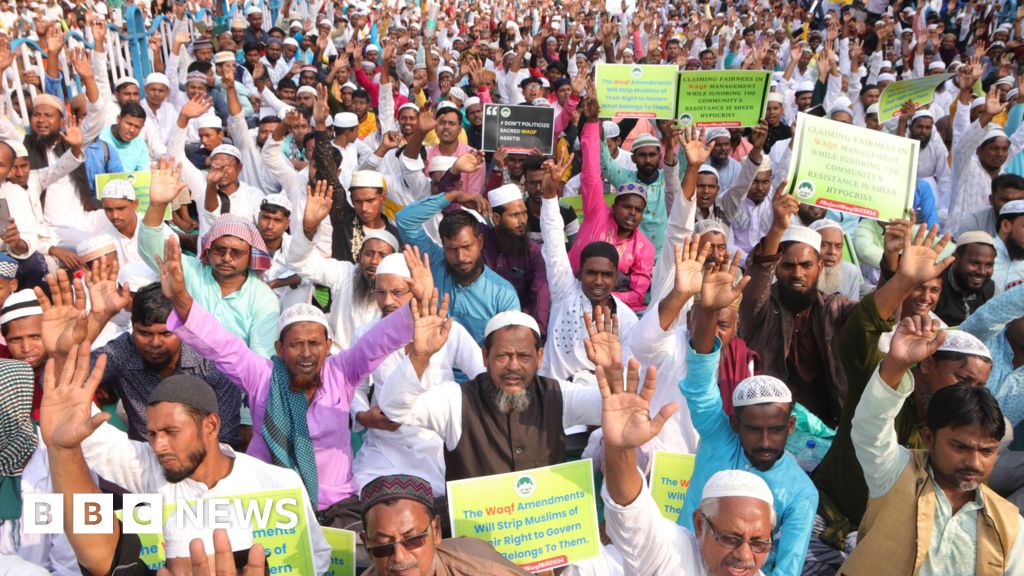India’s Waqf Law Amendments Spark Debate: Reform or Religious Rights Under Threat?
Proposals to overhaul India’s decades-old Waqf Act have ignited fierce debate within the country. Supporters argue that the amendments are necessary to tackle corruption and mismanagement, while critics, predominantly Muslim groups, warn of an attempt to undermine religious rights and community control over crucial assets.
The Waqf Act, 1995 governs properties worth billions of dollars, donated by Indian Muslims over centuries for charitable and religious purposes. These properties, including mosques, madrassas, shelter homes and vast tracts of land, are managed by state-level Waqf Boards.
The proposed amendments, introducing more than 40 changes to the existing law, aim to address what the government views as systemic issues within the Waqf system. Prime Minister Narendra Modi’s administration claims the reforms aim to increase transparency, enhance accountability, and improve the utilization of Waqf assets for the benefit of the Muslim community. However, the proposed bill has met with passionate opposition from several Muslim groups and opposition parties who contend the changes are politically motivated.
A Legacy of Generosity Under Threat?
At the heart of the controversy lies the question of ownership and control. Many Waqf properties lack formal documentation, passed down through generations based on oral tradition and custom.
Critics of the bill argue that the proposed changes threaten the status of such long-standing community assets, potentially opening the door for encroachment and dispossession. They point to a clause in the bill⊺s draft that removes the "Waqf by User" provision, which currently safeguards properties lacking formal documentation but used by Muslims for centuries.
Professor Mujibur Rehman, a prominent scholar on Indian Muslim affairs, expressed concerns about the bill’s potential impact on historically significant mosques, dargahs, and graveyards:
"Tracing the ownership of long-standing community properties is inherently complex. This bill risks jeopardizing the very essence of Waqf – charitable giving for the community’s benefit."
Who Should Control Waqf Resources?
Another contentious aspect of the proposed amendments is the mandatory inclusion of non-Muslims as members of Waqf Boards, a move that has sparked concerns about diluting the community’s control over its own institutions. While some proponents argue that this fosters inclusivity and transparency, others view it as an attempt to impose external control and erode the autonomy of Muslim institutions.
The current Waqf Act mandates that boards consist primarily of Muslims, including nominees from Muslim lawmakers, Islamic scholars, and community leaders. The proposed changes, however, would require a more diverse representation, raising questions about whether this will lead to greater inclusivity or undermine the community’s ability to manage its own affairs effectively.
Balancing Reform and Religious Rights
The debate surrounding the Waqf amendments highlights a broader discussion about the delicate balance between reform and religious rights in India. While acknowledging the need for transparency and accountability within religious institutions, many Muslims fear that the proposed changes constitute an encroachment upon their religious freedom and community autonomy.
The
government insists its intentions are purely to improve governance and ensure that Waqf assets benefit the intended beneficiaries – the Muslim community. However, concerns remain about the potential ramifications for a marginalized community already grappling with issues of representation and socio-economic inequality.
The Path Forward: Dialogue and Consensus
As the debate intensifies, it is crucial for all stakeholders to engage in a meaningful dialogue to find solutions that address both the need for reform and the legitimate concerns of the Muslim community. Finding a middle ground that ensures transparency and accountability while respecting religious sensitivities and community autonomy will be essential in navigating this complex and sensitive issue.
What are your thoughts on the situation? Share your insights in the comments below.

